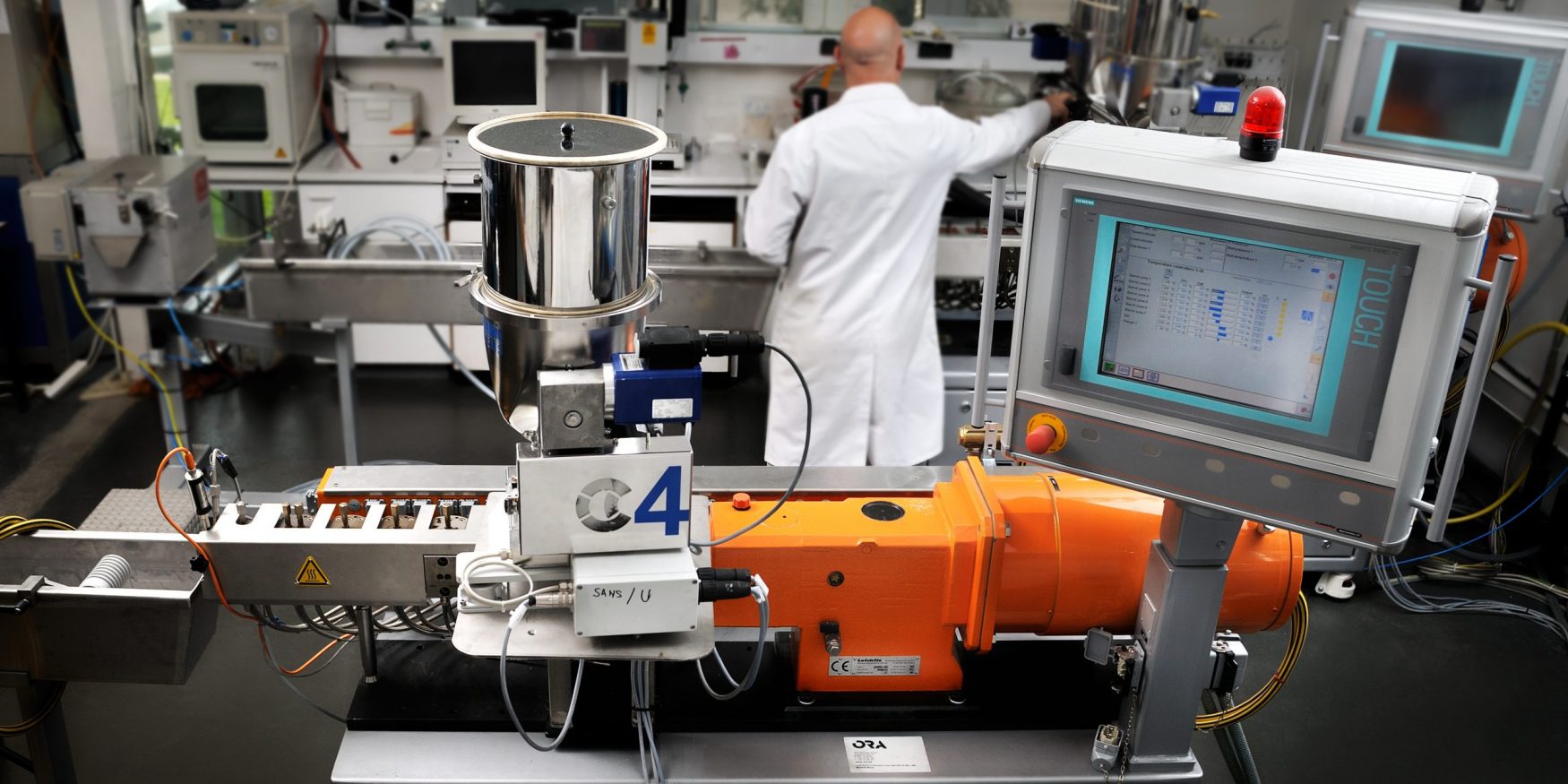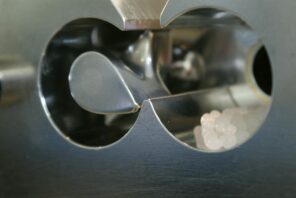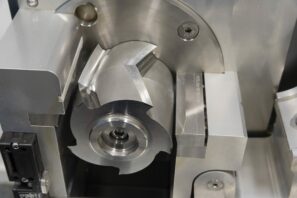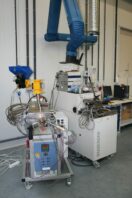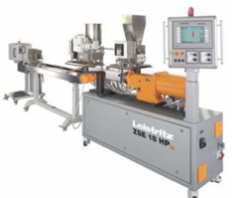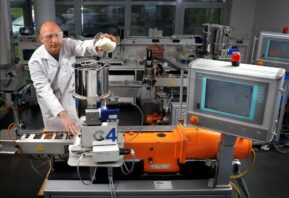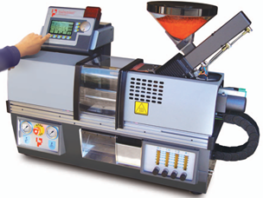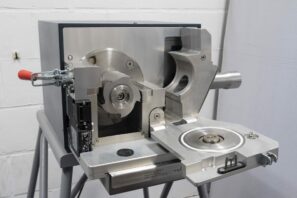Reactive extrusion
Reactive extrusion is a process that allows an extruder to be used as a reactor to carry out chemical reactions. At Materia Nova, this technology is used to chemically modify commercially available thermoplastics (polyolefins, polyesters...), natural biopolymers (starch, cellulose) or to prepare new (bio)polymers (PLA, NIPU...).
Reactive extrusion is a synthesis method that makes it possible to do away with the use of solvents, to be able to envisage several chemical reactions in succession and to work on highly viscous environments.
We offer our customers the opportunity to benefit from reactors and extruders to enable them to carry out in-depth evaluations of both the processing and functional attributes of your materials, even with only a few grams available. Our state-of-the-art equipment covers the production of polymer compounds, monolayers and films, as well as injection molding.
Our strengths:
- Materia Nova has developed strong expertise in reactive extrusion as a solvent-free method for synthesizing new polymers or modifying them.
- Materia Nova has an array of extruders adapted to reactive extrusion, which enables it to gradually scale up to carry out grafting, chain extension or polymerization reactions, on a few dozen grams, hundreds of grams to a few kilograms. These extruders are equipped with accessories that allow the dosing of different reagents in liquid or powder form.
- Thanks to its range of structural, thermal, morphological, mechanical, biodegradation, bio-resorption and fire analyses and characterizations, Materia Nova can cover the entire development chain for composites with one or more properties.
Our solutions for this technology
- Bioplastics
- Catalytic conversion of CO2 in Synthons and e-fuels
- Piezo and thermoelectric properties
- Mechanical recycling of plastics
- Self-resorbing materials
- Modulation of optical properties (transmittance, reflectance, absorbance)
- Chemical recycling of plastics
- Barrier (waterproof or permeability)
- CO2 conversion
- Biocompatible materials
- Fire resistance
